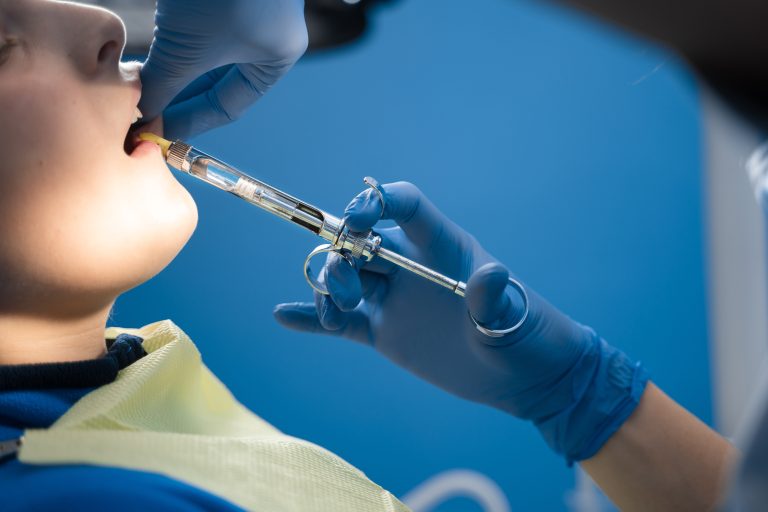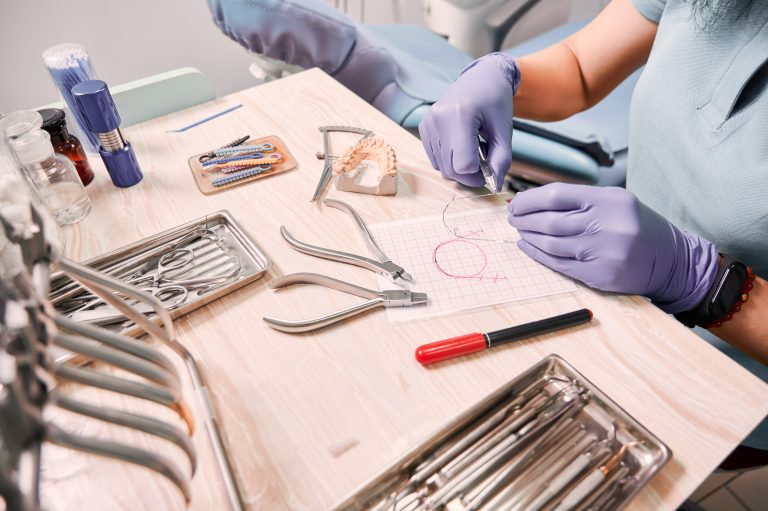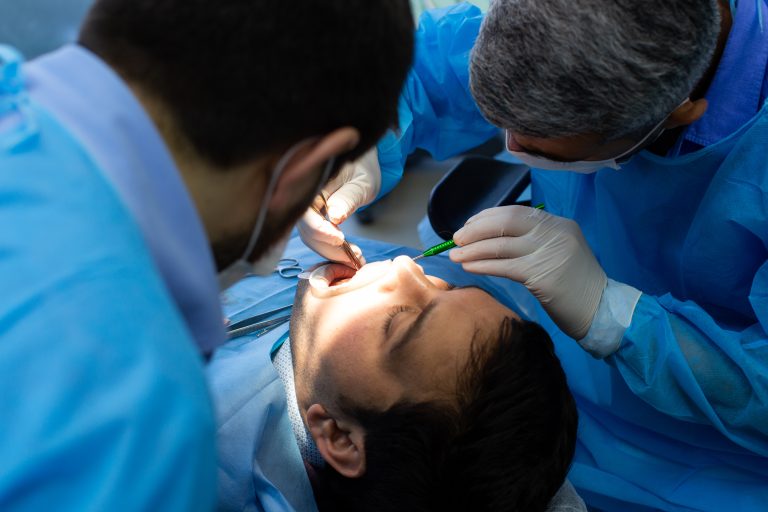


Surgical treatments in dentistry involve medical procedures where various problems related to oral and dental health are resolved through surgical interventions. Dental surgery is typically performed by dentists or oral surgeons. Here are common dental surgical treatments:
Tooth Extraction: Tooth extraction is the process of removing damaged, decayed, or otherwise untreatable teeth.
Dental Implants: Dental implants involve the placement of titanium screw-like artificial roots to replace missing teeth. Prosthetic teeth or bridges are then placed on these implants to achieve an aesthetic and functional solution.
Orthognathic Surgery: This is a surgical procedure aimed at correcting irregularities in the jaw and facial bones. It includes conditions such as jaw closure problems and issues related to the jaw joints.
Surgical Treatment of Dental Cysts and Tumors: Surgical removal of cysts or tumors formed inside the mouth allows for pathological examination.
Gingival Surgery: Surgical interventions performed to treat gum problems. This category includes conditions such as gum inflammations and receding gums.
Apical Resection (Root End Surgery): Surgical removal of infections or cysts at the root tip of a tooth.
Soft Tissue Surgery: Involves surgical treatment of soft tissues inside the mouth, including procedures like oral mucosa surgery and lip surgery.
Orthodontic Surgery: Involves surgical correction of jaw and dental structures as part of orthodontic treatment. It is also commonly referred to as oral surgery.
These surgical procedures are usually performed under local anesthesia, but general anesthesia may be required in more complex cases. Prior to surgery, the patient’s health condition and the risks of the surgical procedure are taken into consideration. After surgery, patients typically enter a healing process and must follow the instructions of the dentist.
Patient Comments
At our clinic, we are ready to answer all your dental health needs with a warm welcome, transparent communication and superior service quality.
formed under my veneers. I went to 3 -4 dentists before Mrs. Esra, but they always had problems, they broke my teeth from the root while installing the veneer. Finally, they recommended Ms. Esra and I was very satisfied. A very light hand and a physician who knows the job saved all of my teeth with root canal treatment. I recommended it to my relatives, my family. There are also those who go from my family.

zü...ç
TR
I went to Mrs. Esra on the recommendation of my neighbor, I am very pleased that she recommended me, I am very pleased that I went, I had an implant and my treatment is still continuing, a very sincere doctor reassures his patient and makes him very comfortable, I recommend it to everyone.

em...ş
TR
Frequently Asked Questions: “Surgical Treatments“
After dental surgery, it is important to follow your doctor’s recommendations. These include taking prescribed medication regularly, practicing good oral hygiene, avoiding hot and hard foods and consulting a doctor when necessary.
The healing process varies depending on the type of procedure, the patient’s general state of health and the complexity of the surgical intervention. However, there is usually mild swelling, pain and bleeding for the first few days. It is important to follow the doctor’s instructions to speed up the healing process.
Suitable candidates for dental surgery are usually patients in good general health and in need of surgical intervention. However, since each patient and situation is different, it is important to perform a detailed examination before deciding on surgery.
Dental surgery is a medical procedure performed for conditions of the teeth or oral tissues that require surgical intervention. These procedures can often include tooth extraction, implant surgery, bone grafting, soft tissue grafting, apical resection (surgical cutting of the root tip).
